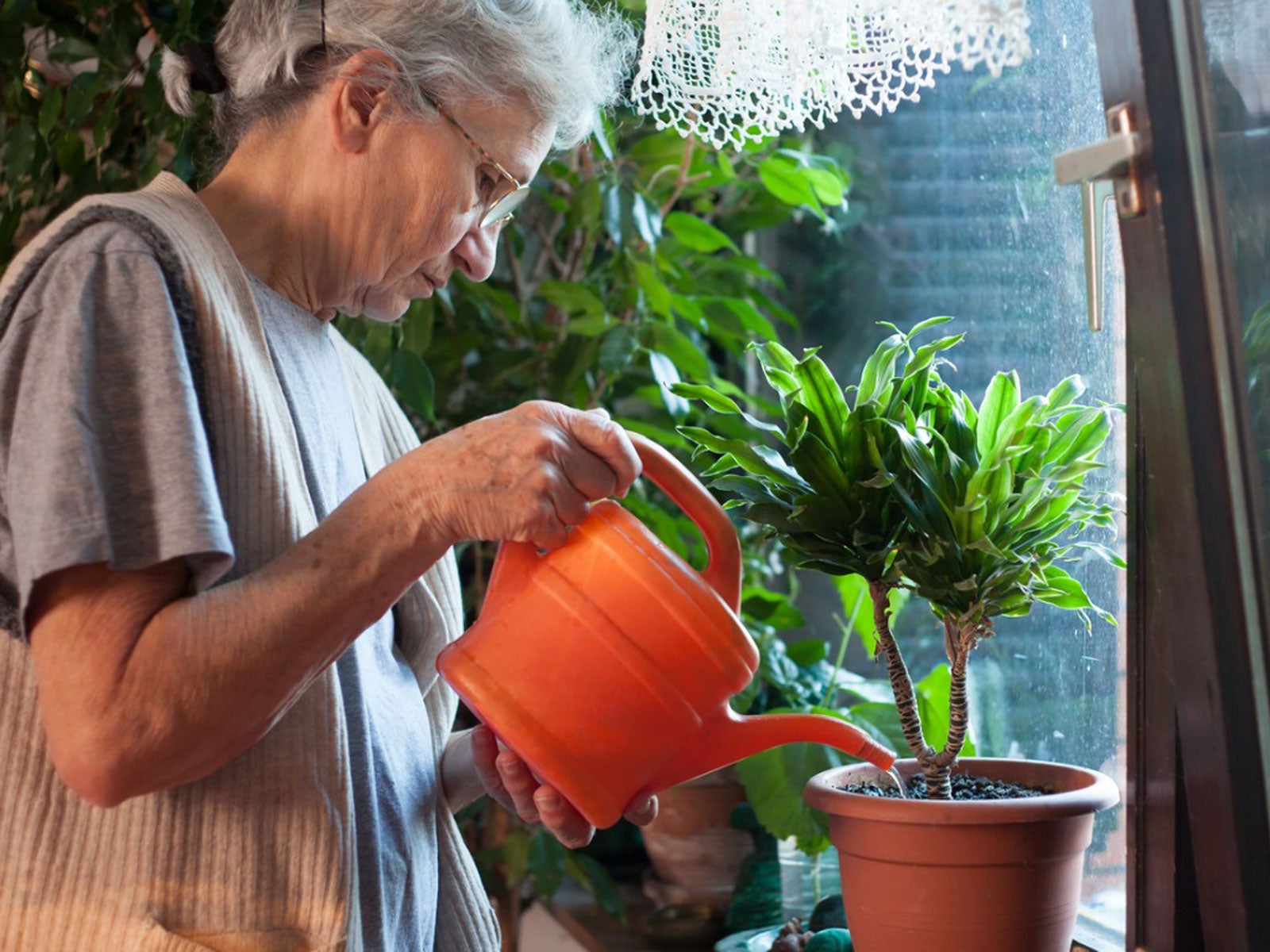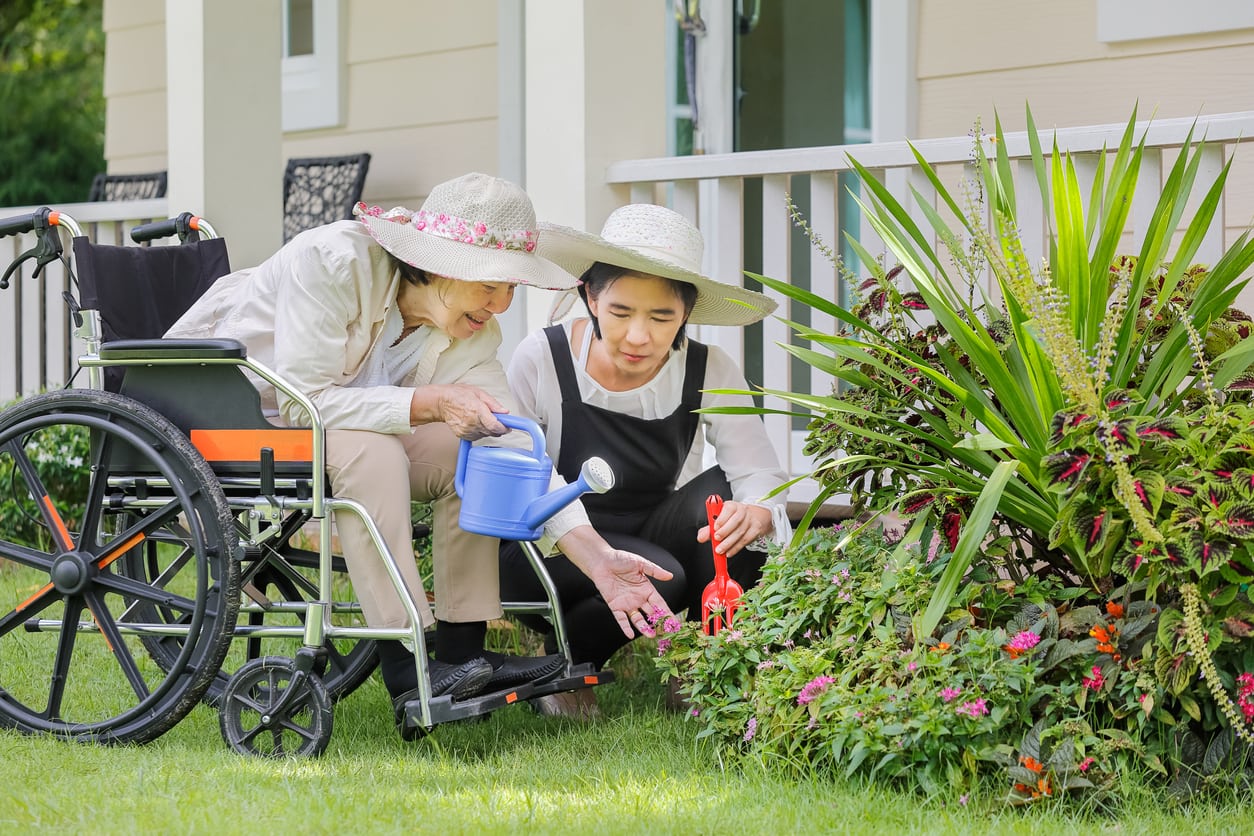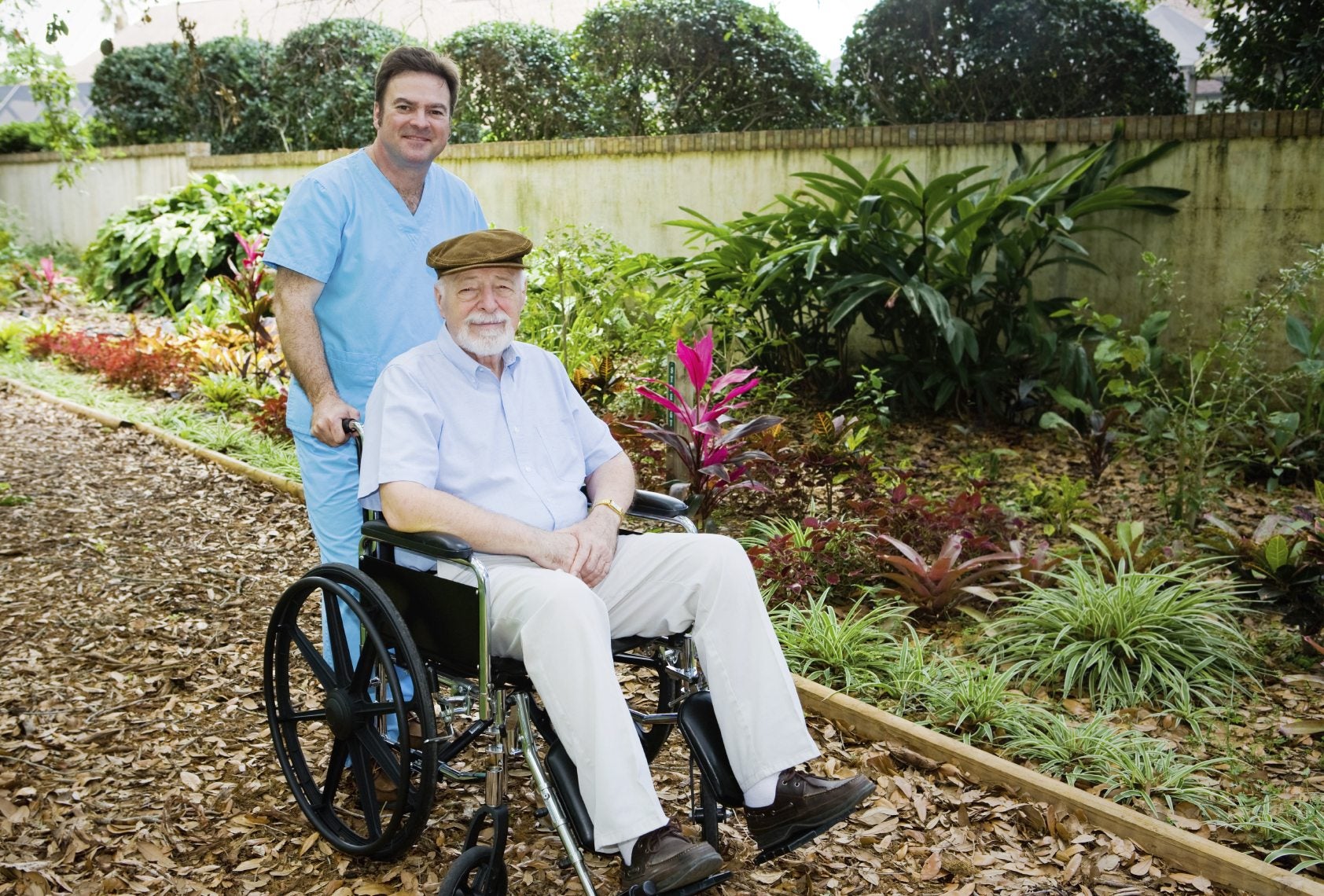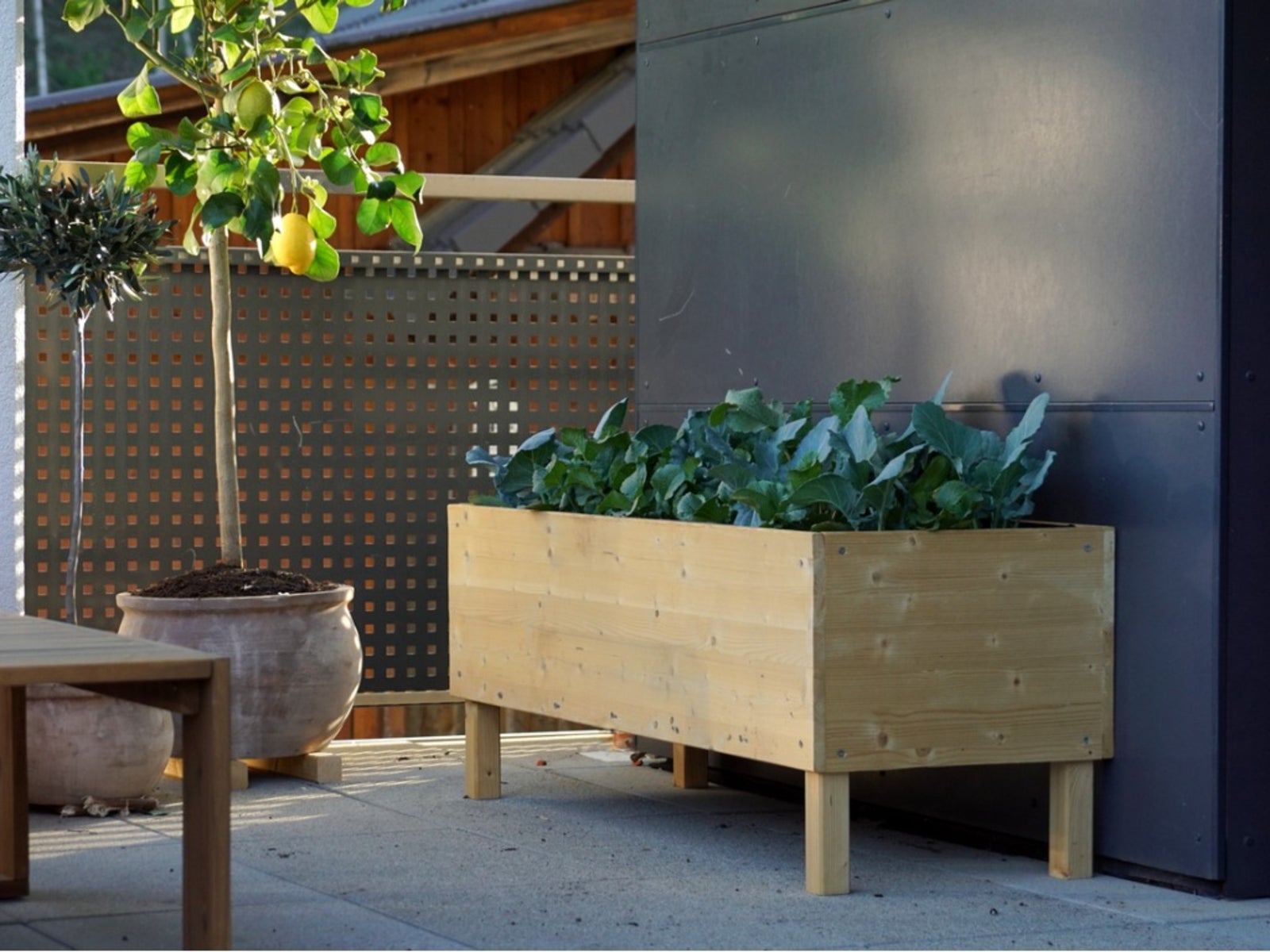What Is A Memory Garden: Gardens For People With Alzheimer’s And Dementia


There are many studies on the benefits of gardening both for the mind and the body. Simply being outdoors and connecting with nature can have a clarifying and beneficial effect. People with dementia or Alzheimer's disease can enjoy a host of positive experiences from participating in the garden. Designing a memory garden, or one for those affected by these debilitating conditions, allows them to enjoy exercise and fresh air as well as stimulate the senses.
What is a Memory Garden?
Memory gardens stimulate patients living with memory loss. They can carry gentle reminders of past experiences and jog the memory as plant identification and care are highlighted. Gardens for people with Alzheimer's are also helpful for the caregivers, whose lives are also turned upside down and need a much deserved place of peace. Alzheimer's friendly gardens have been scientifically shown to help heal body and mind as well as bring hope and engagement in the form of activities and participation. Patient care has evolved over the years and now embraces both western and eastern medicine in a holistic package. It has been shown that just treating the body is not enough of a stimulant in many situations, and such is the case with those suffering from memory loss. Gardens for people with dementia or Alzheimer's can reduce negative feelings, provide positive experiences, reduce stress and help hold attention. It can be argued that any garden has these capacities, but designing a memory garden with such patients in mind should include important elements such as safety and features of interest.
Designing Alzheimer's Friendly Gardens
According to experts, gardens for people with Alzheimer's should have several different aspects. The first is health and safety. Avoiding toxic plants, installing railings and providing paths are all part of creating a safe environment. Fences should be tall enough as to not be scaled and all footpaths non-slip. Paths must be wide enough to accommodate wheelchairs too. Next, any safety features should be disguised to prevent anxiety. Plant vines and taller trees to screen gates and fences and enclose the space in natural peacefulness. Maintenance must be considered so that the place has no pitfalls, drainage is adequate, and the pathways are safe and easy to navigate. Developing a garden that can be appreciated from the indoors can also benefit patients with memory loss. The elements of the garden should include scents, colors, sounds, wildlife, and perhaps even edibles. Who doesn't love a lazy stroll that ends in a freshly picked apple or ripe, red strawberry? These types of thoughtful additions will create a holistic effect that soothes the soul. Remember to include benches for tired walkers and an area of shade to prevent overheating. A memory garden is very similar to any garden, but a few special additions can help it become more beneficial for those challenged by memory loss and provide a beautiful, nurturing and comforting environment.
Gardening tips, videos, info and more delivered right to your inbox!
Sign up for the Gardening Know How newsletter today and receive a free copy of our e-book "How to Grow Delicious Tomatoes".

Bonnie Grant is a professional landscaper with a Certification in Urban Gardening. She has been gardening and writing for 15 years. A former professional chef, she has a passion for edible landscaping.
-
 Looking For Plants To Give You The Soft And Fuzzies? Try These 5 Fuzzy Leaf Plant Options
Looking For Plants To Give You The Soft And Fuzzies? Try These 5 Fuzzy Leaf Plant OptionsLovers of texture, drama, silver foliage and tactile plants will adore these special sensory garden additions. These fuzzy leaf plant options will leave you all aglow
By Susan Albert
-
 Get Ready For A Summer Of Hummers! Grow These Full Sun Hummingbird Plants and Flowers
Get Ready For A Summer Of Hummers! Grow These Full Sun Hummingbird Plants and FlowersIf you’re lucky enough to enjoy a sunny backyard, make sure you are maxing out on your pollinator opportunities and grow these full sun hummingbird plants and flowers
By Tonya Barnett
-
 Seniors And Houseplants: Indoor Senior Gardening Ideas
Seniors And Houseplants: Indoor Senior Gardening IdeasIndoor gardening for seniors can help with depression, stress, and loneliness, especially while social distancing. Here are ideas.
By Mary H. Dyer
-
 Psychiatric Health Garden – Designing Gardens For Mental Health Patients
Psychiatric Health Garden – Designing Gardens For Mental Health PatientsClose your eyes and imagine yourself sitting in your dream garden. Does this visualization make you feel calm and relaxed? This is the concept behind planting gardens for mental health. Learn more about garden therapy and psychiatric health gardens in this article.
By Darcy Larum
-
 Healing Garden Ideas – How To Make A Healing Garden
Healing Garden Ideas – How To Make A Healing GardenEven gardens filled with nothing but ornamental plants can have some medicinal and healing value – a collection of plants meant to soothe and heal the mind and body are known as healing gardens. Click here for some healing garden ideas to help get you started.
By Darcy Larum
-
 Hospice Garden Ideas – Learn About Gardens And Hospice Care
Hospice Garden Ideas – Learn About Gardens And Hospice CareBecause of their therapeutic benefits, gardens for those in hospice care are often incorporated into the facility. What is a hospice garden? Click here to find out about the relationship between gardens and hospice and how to design a hospice garden.
By Amy Grant
-
 Senior Home Garden Activities: Gardening Activities For The Elderly
Senior Home Garden Activities: Gardening Activities For The ElderlyMore senior home garden activities are being offered to elderly residents of retirement homes and nursing homes, and even to patients with dementia or Alzheimer's. Click here to learn more about gardening activities for the elderly.
By Teo Spengler
-
 Gardening While Pregnant: Is It Safe To Garden When Pregnant
Gardening While Pregnant: Is It Safe To Garden When PregnantGardening while pregnant is an enjoyable way to get the exercise you need to stay healthy during pregnancy, but this form of exercise isn't without risk. Learn more about gardening during pregnancy in this article.
By Jackie Carroll
-
 Table Garden Design: How To Build Table Garden Boxes
Table Garden Design: How To Build Table Garden BoxesWhen gardening becomes difficult, either through growing older or due to a disability, it may be time for a table garden design in the landscape. This article can help with that. Click here to learn more.
By Susan Patterson
-
 Horticulture Therapeutic Benefits - Using Healing Gardens For Therapy
Horticulture Therapeutic Benefits - Using Healing Gardens For TherapyWhat is horticultural therapy and how is it used? Learn more about healing gardens for therapy and the horticulture therapeutic benefits they provide in this article. Click here for additional info.
By Susan Patterson